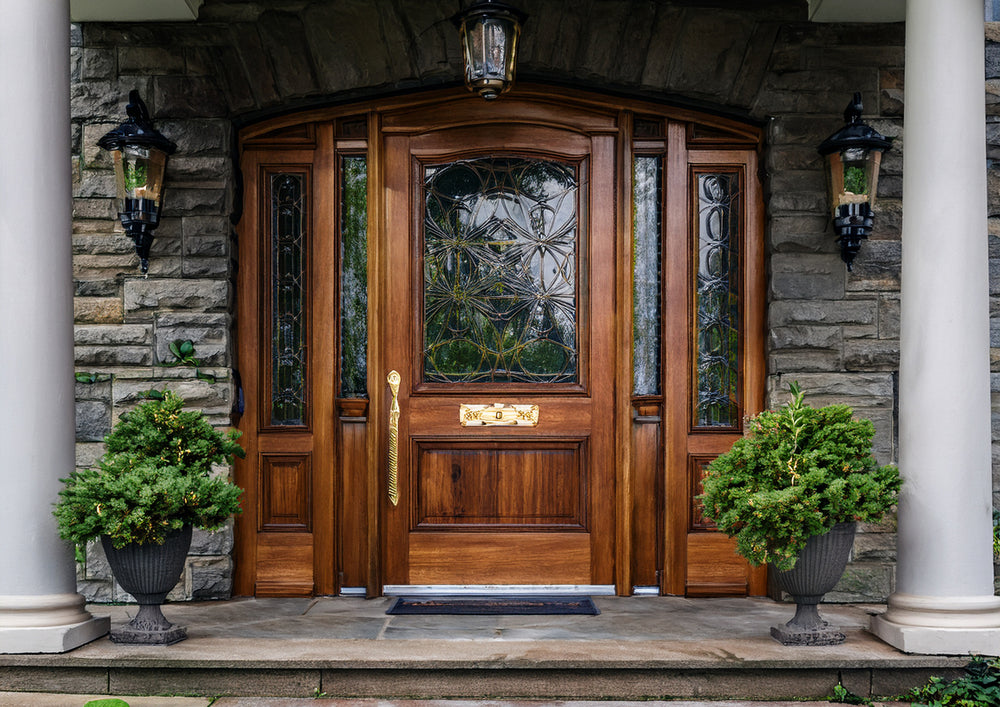How the Right Exterior Doors Can Make Your Home Eco-Friendly

How The Right Exterior Doors Can Help You Be More Eco-Friendly in South Africa
When it comes to making your home more eco-friendly, people tend to focus mainly on insulation, energy-efficient windows, and solar panels. But there is one often overlooked aspect, and that is exterior doors. The right exterior door can significantly impact your home’s energy efficiency, reduce waste, and even contribute to a more sustainable lifestyle.
Here’s How Your Exterior Doors Can Help You Go Green With Your South African Home.
1. Improved Energy Efficiency
Exterior doors play a crucial role in maintaining indoor temperatures, especially in South Africa's varied climate. Poorly insulated or outdated doors allow drafts, causing your heating and cooling systems to work harder, which leads to increased energy consumption.
Opting for doors with proper insulation, such as fibreglass or solid wood with weatherstripping, helps retain indoor temperatures, reducing your reliance on heating in winter and air conditioning in summer.
Some energy-efficient exterior doors also come with foam cores or other insulating materials that enhance their thermal resistance.
Additionally, well-insulated exterior doors can help alleviate a phenomenon called the “urban heat island effect” that often occurs in cities like Johannesburg and Cape Town. By maintaining proper indoor temperatures and reducing excess heat transfer, these doors can potentially contribute to a more stable and balanced outdoor environment as well.
2. Sustainable Materials Matter
The material of your exterior door matters when it comes to sustainability. Choosing doors made from reclaimed wood, responsibly sourced timber, or recycled materials can significantly reduce environmental impact. South Africa has a wealth of sustainably managed forestry operations, and choosing FSC-certified timber supports responsible forestry practices. Steel and fibreglass doors with high-recycled content also provide durability and insulation while minimising waste.
Wooden exterior doors, when sourced sustainably, offer a natural, biodegradable option that minimises ecological damage. In South Africa, it’s best to look for local suppliers that use sustainably harvested timber, such as Meranti or Saligna, which are both durable and renewable. Similarly, composite wood doors combine wood fibres and resins to create durable and eco-friendly alternatives to traditional hardwood exterior doors.
3. Better Sealing and Weatherproofing
A properly sealed exterior door prevents air leaks, reducing the need for excessive heating or cooling. Look for exterior doors with high-quality weatherstripping and advanced sealing technologies to ensure that your home remains comfortable without wasting energy.
Given South Africa’s coastal regions, where high humidity and salt air can cause wear and tear, investing in weatherproofed exterior doors is essential. High-performance weatherproofing can significantly extend the life of your door while providing additional protection against rain, wind, and temperature fluctuations, particularly in areas like Durban or Port Elizabeth.
4. Longer Lifespan Reduces Waste
Investing in a high-quality, durable exterior door means you won’t need to replace it as often, reducing waste in landfills. Doors made from strong, weather-resistant materials like composite wood, fibreglass, or solid steel tend to have longer lifespans, making them a more sustainable option.
A longer-lasting exterior door also reduces the demand for raw materials and energy-intensive manufacturing processes. In South Africa, where waste management and landfill capacity are ongoing challenges, choosing a durable exterior door helps minimise environmental strain.
5. Natural Light Reduces Energy Consumption
Exterior doors with glass panels bring in natural light, reducing the need for artificial lighting during the day. Look for exterior doors with double or triple-pane glass that offers insulation while maximising daylight.
In sunny cities like Pretoria and Bloemfontein, maximising natural light is an effective way to cut down on electricity usage. Low-emissivity (Low-E) glass coatings help reflect infrared heat while allowing visible light to pass through, keeping interiors bright without excessive heat gain. Frosted or tinted glass options can enhance privacy while still allowing natural light to filter in, further reducing the need for artificial lighting.
6. Smart Features for Eco-Conscious Living
Some modern exterior doors come with smart technology, such as automated locks and energy-efficient coatings. Smart exterior doors can help you optimise security while reducing energy waste through improved insulation and minimal heat loss.
In South Africa, where power outages (load shedding) are common, energy efficiency is key. Advanced materials, such as phase-change materials (PCMs), can further enhance energy efficiency by absorbing and releasing heat depending on ambient temperatures, and smart sensors can help monitor for air leaks and suggest maintenance improvements to ensure continued energy efficiency.
7. Recycling and Disposal Considerations
When replacing an old exterior door, consider recycling or repurposing it instead of sending it to a landfill. Many recycling programs in South Africa accept wood, steel, and fibreglass doors, breaking them down into reusable materials for new construction projects. You can also repurpose old doors into furniture, garden structures, or decorative features within your home, extending their usefulness and reducing waste.
If your exterior door is still in good condition, consider donating it to organisations like Habitat for Humanity South Africa or local building material reuse centres. These groups often refurbish building materials for low-income housing, giving your door a second life while reducing overall waste.
In conclusion, choosing the right exterior door isn’t just about aesthetics, it’s about taking a step toward a more eco-friendly and energy-efficient home. By investing in well-insulated, sustainably sourced doors, you can lower your carbon footprint, reduce electricity bills, and create a more sustainable living space.
If you’re considering upgrading your exterior door, look for eco-friendly certifications and high-quality materials from local suppliers, such as Doors Direct. Your home, and the planet, will thank you!


